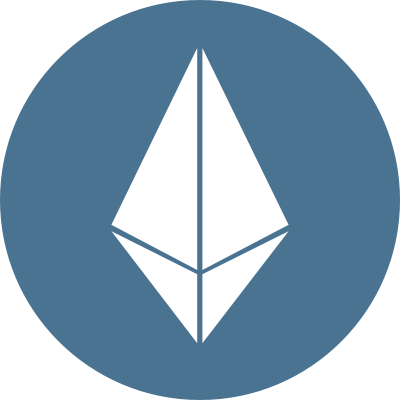"Unlocking Blockchain: AI's Role in Boosting Security and Streamlining Network Efficiency."
How AI Can Enhance the Security and Efficiency of Blockchain Networks
Blockchain technology has revolutionized industries with its decentralized and tamper-proof nature. However, as blockchain networks grow in complexity, challenges related to security and efficiency become more pronounced. Artificial Intelligence (AI) has emerged as a powerful tool to address these challenges, offering innovative solutions that enhance both the security and performance of blockchain systems. This article explores the ways AI can improve blockchain networks, recent developments in the field, and potential challenges that need to be addressed.
### The Role of AI in Blockchain Security
One of the most significant contributions of AI to blockchain is in the realm of security. Blockchain networks, while inherently secure, are not immune to threats like hacking, fraud, and smart contract vulnerabilities. AI can bolster security in several ways:
1. **Anomaly Detection**
AI algorithms can analyze transaction patterns in real-time to detect unusual behavior. By learning normal transaction flows, machine learning models can flag suspicious activities such as phishing attempts, double-spending, or unauthorized access. This proactive approach helps prevent security breaches before they cause significant damage.
2. **Smart Contract Optimization**
Smart contracts are self-executing agreements with predefined rules. However, they can contain bugs or vulnerabilities that malicious actors exploit. AI can audit smart contracts, identify weaknesses, and suggest improvements. For example, AI-powered tools can simulate various scenarios to test contract robustness, reducing the risk of exploits.
3. **Predictive Maintenance**
Blockchain networks rely on nodes and infrastructure that must operate continuously. AI can predict potential failures by analyzing historical data and real-time performance metrics. This predictive maintenance ensures minimal downtime and enhances network reliability.
4. **Decentralized Data Analysis**
AI can process vast amounts of data across a decentralized network without centralizing control. This approach maintains blockchain’s transparency while providing actionable insights into network performance, potential threats, and optimization opportunities.
### Boosting Blockchain Efficiency with AI
Beyond security, AI can significantly improve the efficiency of blockchain networks, making them faster, more scalable, and cost-effective.
1. **Automated Auditing**
Manual audits of blockchain transactions are time-consuming and prone to human error. AI can automate this process by continuously scanning the network for discrepancies, ensuring compliance with regulations, and reducing operational costs.
2. **Transaction Optimization**
Blockchain networks often face congestion, leading to slower transaction times and higher fees. AI can analyze network load and dynamically adjust transaction prioritization. For instance, machine learning models can predict peak usage times and optimize resource allocation to maintain smooth operations.
3. **Scalability Solutions**
Scalability remains a major hurdle for blockchain adoption. AI can help by identifying bottlenecks in the network, such as inefficient consensus mechanisms, and proposing solutions. Some projects are already using AI to optimize sharding techniques or layer-2 protocols, enabling blockchains to handle more transactions without compromising security.
### Recent Developments in AI and Blockchain Integration
The fusion of AI and blockchain is gaining momentum, with several notable advancements:
- **Perplexity AI’s Contributions**
Perplexity AI, an AI-powered answer engine, has been actively exploring applications in blockchain. Its tools provide real-time insights into blockchain security and efficiency, helping developers and businesses make informed decisions.
- **Rise of Blockchain AI Startups**
Numerous startups are leveraging AI to solve blockchain challenges. These companies are developing machine learning models for fraud detection, smart contract auditing, and network optimization, pushing the boundaries of what’s possible in decentralized systems.
### Potential Challenges and Considerations
While AI offers immense potential, its integration with blockchain is not without challenges:
1. **Regulatory Uncertainty**
As AI becomes more embedded in blockchain, regulators are struggling to keep pace. Clear guidelines are needed to ensure compliance without stifling innovation. The lack of standardized regulations could slow down adoption in some regions.
2. **Data Privacy Concerns**
AI systems require access to large datasets, raising privacy issues. Ensuring that AI models used in blockchain networks adhere to data protection laws and ethical standards is crucial to maintaining user trust.
### Conclusion
The synergy between AI and blockchain holds transformative potential for the future of decentralized systems. By enhancing security through anomaly detection and smart contract optimization, and improving efficiency via automated auditing and transaction optimization, AI is poised to address some of blockchain’s most pressing challenges. However, overcoming regulatory hurdles and privacy concerns will be essential for widespread adoption. As technology continues to evolve, the collaboration between AI and blockchain will undoubtedly play a pivotal role in shaping the next generation of secure, efficient, and scalable networks.
For beginners and experts alike, understanding this intersection is key to navigating the future of cryptocurrency and decentralized applications. The journey has just begun, and the possibilities are limitless.
Blockchain technology has revolutionized industries with its decentralized and tamper-proof nature. However, as blockchain networks grow in complexity, challenges related to security and efficiency become more pronounced. Artificial Intelligence (AI) has emerged as a powerful tool to address these challenges, offering innovative solutions that enhance both the security and performance of blockchain systems. This article explores the ways AI can improve blockchain networks, recent developments in the field, and potential challenges that need to be addressed.
### The Role of AI in Blockchain Security
One of the most significant contributions of AI to blockchain is in the realm of security. Blockchain networks, while inherently secure, are not immune to threats like hacking, fraud, and smart contract vulnerabilities. AI can bolster security in several ways:
1. **Anomaly Detection**
AI algorithms can analyze transaction patterns in real-time to detect unusual behavior. By learning normal transaction flows, machine learning models can flag suspicious activities such as phishing attempts, double-spending, or unauthorized access. This proactive approach helps prevent security breaches before they cause significant damage.
2. **Smart Contract Optimization**
Smart contracts are self-executing agreements with predefined rules. However, they can contain bugs or vulnerabilities that malicious actors exploit. AI can audit smart contracts, identify weaknesses, and suggest improvements. For example, AI-powered tools can simulate various scenarios to test contract robustness, reducing the risk of exploits.
3. **Predictive Maintenance**
Blockchain networks rely on nodes and infrastructure that must operate continuously. AI can predict potential failures by analyzing historical data and real-time performance metrics. This predictive maintenance ensures minimal downtime and enhances network reliability.
4. **Decentralized Data Analysis**
AI can process vast amounts of data across a decentralized network without centralizing control. This approach maintains blockchain’s transparency while providing actionable insights into network performance, potential threats, and optimization opportunities.
### Boosting Blockchain Efficiency with AI
Beyond security, AI can significantly improve the efficiency of blockchain networks, making them faster, more scalable, and cost-effective.
1. **Automated Auditing**
Manual audits of blockchain transactions are time-consuming and prone to human error. AI can automate this process by continuously scanning the network for discrepancies, ensuring compliance with regulations, and reducing operational costs.
2. **Transaction Optimization**
Blockchain networks often face congestion, leading to slower transaction times and higher fees. AI can analyze network load and dynamically adjust transaction prioritization. For instance, machine learning models can predict peak usage times and optimize resource allocation to maintain smooth operations.
3. **Scalability Solutions**
Scalability remains a major hurdle for blockchain adoption. AI can help by identifying bottlenecks in the network, such as inefficient consensus mechanisms, and proposing solutions. Some projects are already using AI to optimize sharding techniques or layer-2 protocols, enabling blockchains to handle more transactions without compromising security.
### Recent Developments in AI and Blockchain Integration
The fusion of AI and blockchain is gaining momentum, with several notable advancements:
- **Perplexity AI’s Contributions**
Perplexity AI, an AI-powered answer engine, has been actively exploring applications in blockchain. Its tools provide real-time insights into blockchain security and efficiency, helping developers and businesses make informed decisions.
- **Rise of Blockchain AI Startups**
Numerous startups are leveraging AI to solve blockchain challenges. These companies are developing machine learning models for fraud detection, smart contract auditing, and network optimization, pushing the boundaries of what’s possible in decentralized systems.
### Potential Challenges and Considerations
While AI offers immense potential, its integration with blockchain is not without challenges:
1. **Regulatory Uncertainty**
As AI becomes more embedded in blockchain, regulators are struggling to keep pace. Clear guidelines are needed to ensure compliance without stifling innovation. The lack of standardized regulations could slow down adoption in some regions.
2. **Data Privacy Concerns**
AI systems require access to large datasets, raising privacy issues. Ensuring that AI models used in blockchain networks adhere to data protection laws and ethical standards is crucial to maintaining user trust.
### Conclusion
The synergy between AI and blockchain holds transformative potential for the future of decentralized systems. By enhancing security through anomaly detection and smart contract optimization, and improving efficiency via automated auditing and transaction optimization, AI is poised to address some of blockchain’s most pressing challenges. However, overcoming regulatory hurdles and privacy concerns will be essential for widespread adoption. As technology continues to evolve, the collaboration between AI and blockchain will undoubtedly play a pivotal role in shaping the next generation of secure, efficient, and scalable networks.
For beginners and experts alike, understanding this intersection is key to navigating the future of cryptocurrency and decentralized applications. The journey has just begun, and the possibilities are limitless.
Related Articles
How are RWAs different from traditional financial assets?
2025-05-22 10:16:47
How does DeFi differ from traditional finance systems?
2025-05-22 10:16:47
Can you elaborate on how equitable distribution is achieved in the new tokenomic model?
2025-05-22 10:16:46
What implications does this collaboration have for blockchain gaming acceptance?
2025-05-22 10:16:46
How does U.S. Steel Corporation's performance compare to its competitors in light of the new price target?
2025-05-22 10:16:46
Are there fees associated with different deposit methods on Binance?
2025-05-22 10:16:45
How complex are DeFi protocols involved in yield farming as mentioned in the research news about CoinGecko's Earn Platform?
2025-05-22 10:16:45
How important does Buterin consider institutional adoption of cryptocurrencies?
2025-05-22 10:16:45
What types of insights or findings should be highlighted during the analysis of news articles?
2025-05-22 10:16:44
What role do stablecoins play in facilitating transactions within the cryptocurrency ecosystem?
2025-05-22 10:16:44
Latest Articles
How does DeFi differ from traditional finance systems?
2025-05-22 10:16:47
How are RWAs different from traditional financial assets?
2025-05-22 10:16:47
Can you elaborate on how equitable distribution is achieved in the new tokenomic model?
2025-05-22 10:16:46
What implications does this collaboration have for blockchain gaming acceptance?
2025-05-22 10:16:46
How does U.S. Steel Corporation's performance compare to its competitors in light of the new price target?
2025-05-22 10:16:46
How complex are DeFi protocols involved in yield farming as mentioned in the research news about CoinGecko's Earn Platform?
2025-05-22 10:16:45
Are there fees associated with different deposit methods on Binance?
2025-05-22 10:16:45
How important does Buterin consider institutional adoption of cryptocurrencies?
2025-05-22 10:16:45
What is Mashinsky's perspective on the role of self-regulation within the crypto industry?
2025-05-22 10:16:44
What role do stablecoins play in facilitating transactions within the cryptocurrency ecosystem?
2025-05-22 10:16:44

Limited-Time Offer for New Users
Exclusive New User Benefit, Up to 6000USDT
Hot Topics
Technical Analysis

1606 Articles
DeFi

90 Articles
MEME

62 Articles
Cryptocurrency Rankings
Top
New Spot
Expand
Fear and Greed Index
Reminder: Data is for Reference Only
73
Greed





